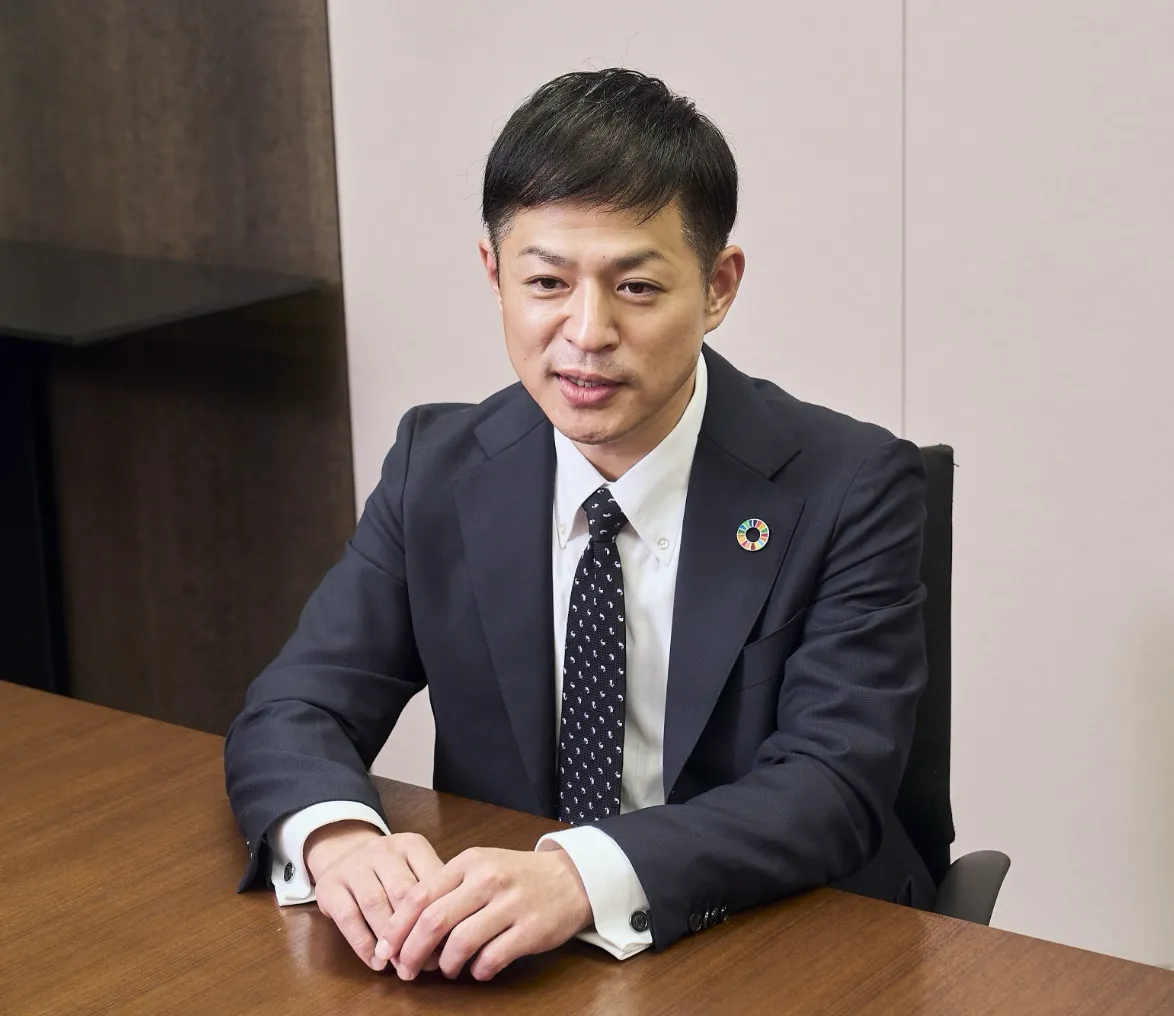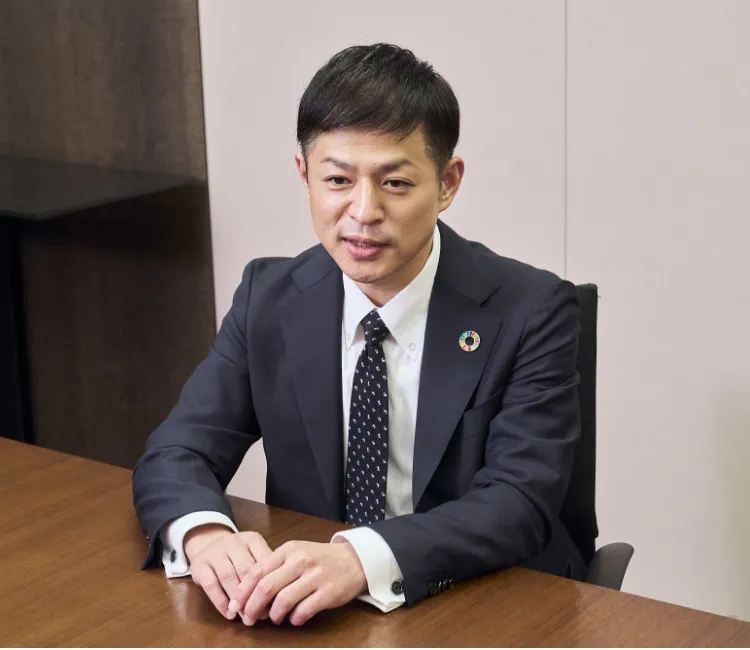To achieve carbon neutrality, renewable energy has become more important than ever. However, renewable energy faces a significant challenge: its heavy reliance on weather conditions. This dependency can cause power generation and supply to become unstable, making it less reliable.
Electricity supply and demand must always be balanced in real-time. If they are not, the risk of blackouts or equipment failures increases. Traditionally, large power companies managed this balance by using thermal power plants to adjust for excess electricity or compensate for shortages. But in April 2020, Japan introduced a legal change to separate power generation from transmission. This change was made to promote greater neutrality within the power system, and now, supply-demand balancing is handled through market-based mechanisms.
One potential solution to these challenges is “grid-scale battery storage.” These batteries are directly connected to power grids, storing extra electricity during times when demand is low and releasing it when demand is high. This stabilizes the fluctuating power output of renewable energy and improves the reliability of the power grid.
Although grid-scale batteries are expected to promote the use of renewable energy, they also face significant challenges. The technology is new, and there are very few examples of such projects. This makes it difficult for investors and banks to assess the risks, leading to challenges in securing funding. In response to this, in August 2023, SMFL MIRAI Partners Co., Ltd. (SMFL MIRAI Partners) became the first company in Japan to successfully structure project financing for a grid-scale battery storage project.
Challenges and
Background of the
Grid-Scale Battery
Storage Project
This project began with a request from RENOVA, Inc. (Renova), a company with a strong track record in renewable energy. In Japan, there were no prior examples of project financing for grid-scale battery storage businesses. Within a consortium of companies (including Idemitsu Kosan Co., Ltd., Renova, and Nagase & Co., Ltd.) working together on this large-scale project, Renova, which was responsible for securing funding, approached SMFL MIRAI Partners. They asked for help, recognizing SMFL MIRAI Partners’ ability to understand and act from the perspective of project operators. In response, Shigenobu Maeda from the Environmental and Energy Business Development Dept. took charge of the project.
Maeda has been involved in renewable energy-related projects for nearly 10 years, gaining experience working with a diverse range of clients, including those in solar power, biomass, and wind energy. Through his work, he understood how grid-scale battery storage plays a key role in expanding the use of renewable energy.
“The more I learned about grid-scale battery storage, the more I understood its incredible value in helping achieve carbon neutrality by 2050. That’s why we were determined to make this the first-ever financing case in this field,”
Maeda explained.
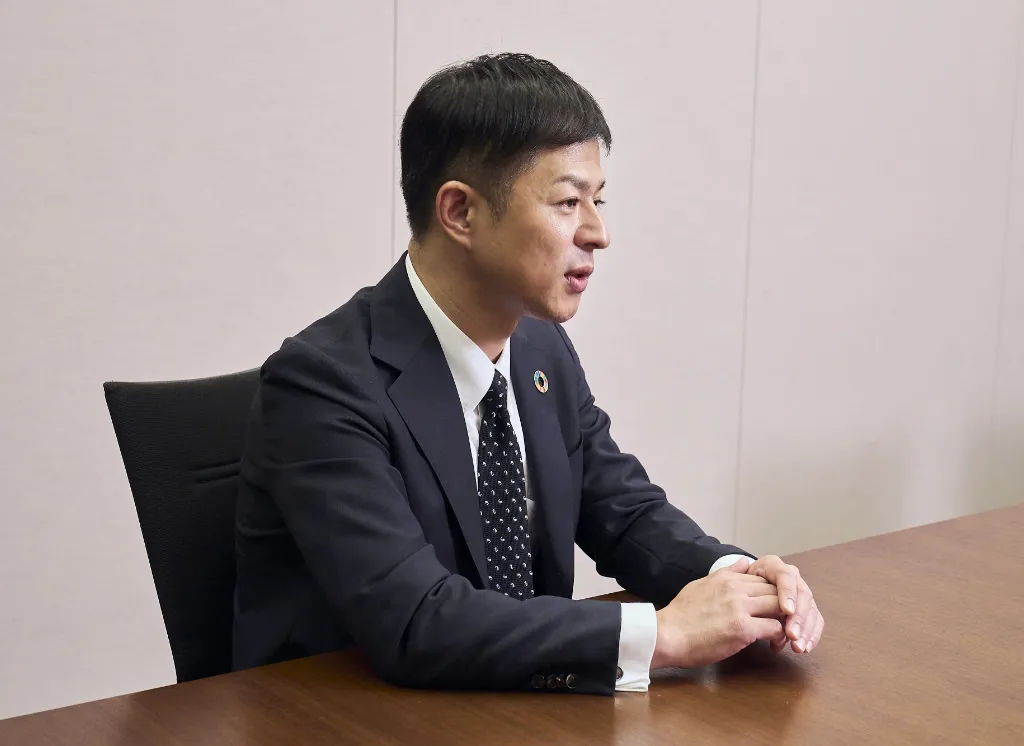
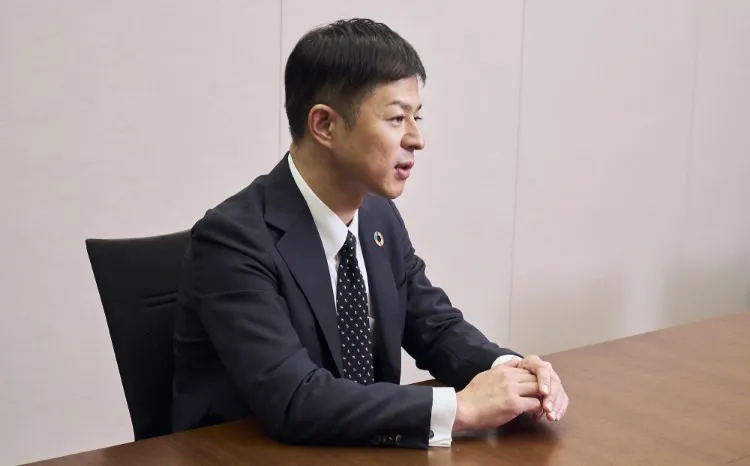
However, he acknowledged that the journey was far from easy.
Grid-scale battery storage requires a large initial investment. At the same time, revenue generation depends on participation in several markets. These include the supply-demand adjustment market, which helps regulate frequency and balance power, the capacity market, which ensures stable electricity supply, and the wholesale electricity market, where surplus power is traded. Securing contracts or winning bids in these markets is essential, as revenues can fluctuate daily.
This variability makes it challenging to secure project financing with stable income streams, such as those provided by the Feed-in Tariff (FIT) system. Additionally, because this business is a new and emerging field, business valuations and contract terms had to be created entirely from scratch.
The Journey to
Structuring Japan’s First-
Ever Loan for Grid-Scale
Battery Storage
Although there were no previous examples of financing for grid-scale battery storage, there was already a long track record in power balancing auctions and the wholesale electricity market before the supply-demand adjustment market was established.
The team began by carefully analyzing data from these markets and predicting future trends in the electricity market. Using this information, they created a business plan focused on operations within the supply-demand adjustment market. They also performed detailed stress tests to assess potential risks and determine appropriate loan amounts.
To ensure reliable loan recovery, the team developed a flexible repayment schedule. This plan took into account the large income fluctuations that are common in this type of business.
In addition, they carefully evaluated the terms and reward structures for electricity supply in the supply-demand adjustment market. They also analyzed factors such as pricing, quantity, duration, and conditions in the wholesale electricity market. Each contract was carefully structured to serve as reliable collateral.
Throughout this process, the company’s risk management division gave clear and helpful feedback on risk assessments. At the same time, the department responsible for promoting new business areas shared valuable insights about the framework of the battery storage business. Thanks to these efforts, the team was able to swiftly evaluate risks and refine the business model for the grid-scale battery storage project.
The contractual terms for the grid-scale battery storage business presented unique challenges. However, the team diligently collaborated with stakeholders and financing clients, including Renova, to reach an agreement that would ensure the feasibility of loan repayments.
As a result, the project financing was finalized in August 2023, and installation work is now underway. The battery storage facility will have a system capacity of 15 MW and a storage capacity of 48 MWh, sufficient to power approximately 30,000 to 40,000 households for several hours. The facility is slated to begin operations in October 2025.
This project was recognized by IJGlobal, an international project finance magazine, at the IJGlobal Awards 2023, which honor outstanding energy, renewable energy, and infrastructure projects worldwide. It was awarded the Renewable Energy Deal of the Year BESS APAC award. As Japan’s first project financing case in this field, it has received high praise and attracted significant attention both in Japan and internationally.
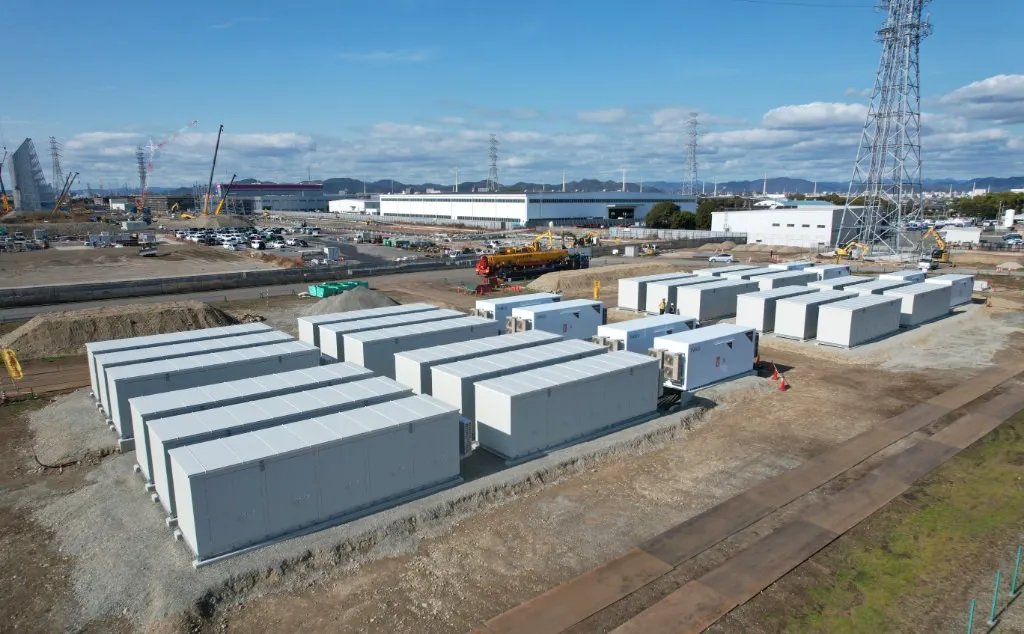
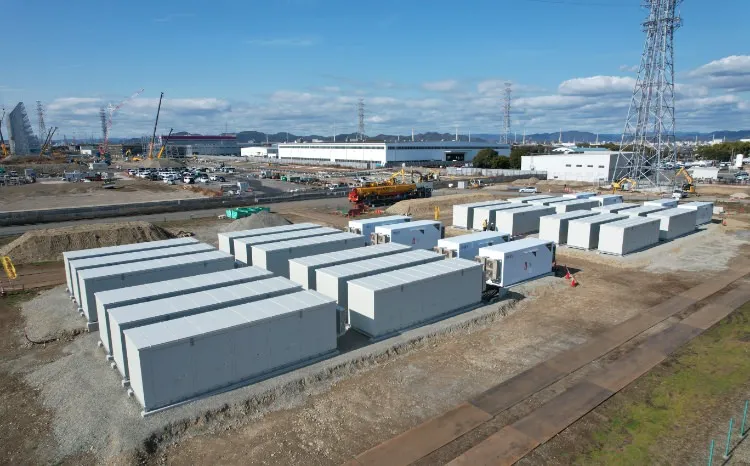
A grid-scale battery storage system is being installed on unused land at the former Idemitsu Kosan Co., Ltd. Hyogo Refinery site in Himeji City, Hyogo Prefecture.
How to Approach
Unprecedented Projects
and Ventures
Building on this success, the company plans to further expand its battery storage business. Alongside advancing a second project finance initiative, it is also exploring the potential to develop its own grid-scale battery storage business. To support this growth, the company, which is also active in power generation, is actively working to secure land and grid capacity for these projects.
Furthermore, the company aims to collaborate with its partners to broaden the energy supply value chain. This includes initiatives spanning upstream power generation, midstream supply-demand balancing, and downstream retail operations.
Maeda reflected on the project and shared his thoughts, “Grid-scale battery storage is a highly innovative field, and as the first financing case, I have to admit there were moments of uncertainty. However, even unprecedented projects don’t emerge entirely from nothing. Each part builds on existing businesses. By carefully observing the current industries and markets, thinking about future possibilities, and working closely with our clients to solve their challenges, I believe we can create ‘Shaka-kachi (SMBC Group’s slogan meaning ‘creating social value’).’”
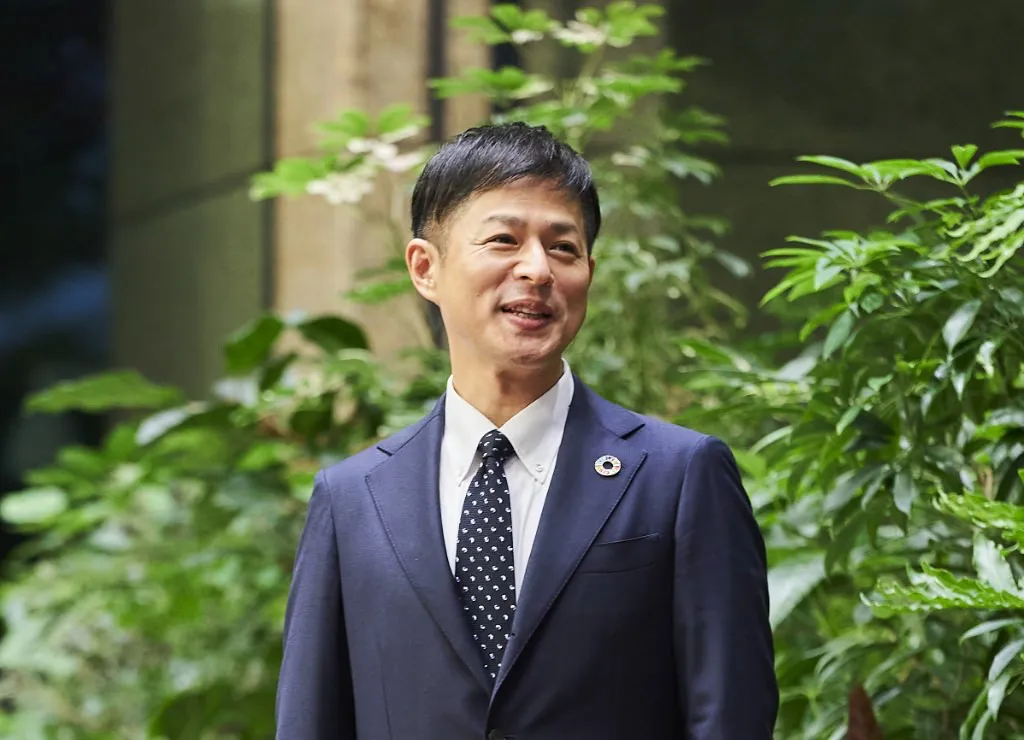
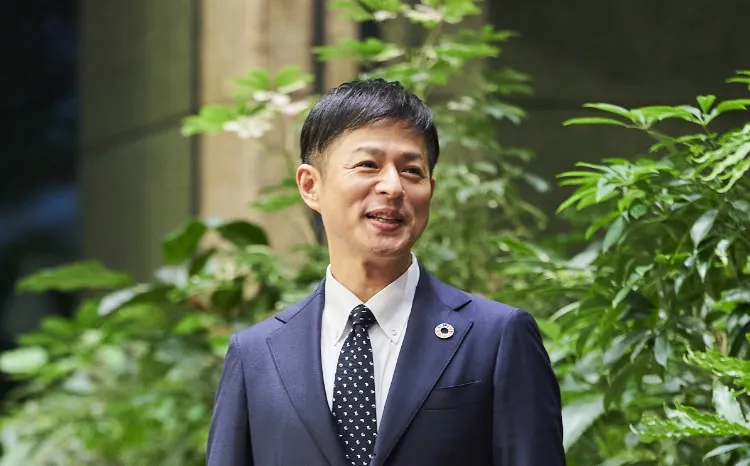
*Based on research by Sumitomo Mitsui Finance and Leasing Co., Ltd.
